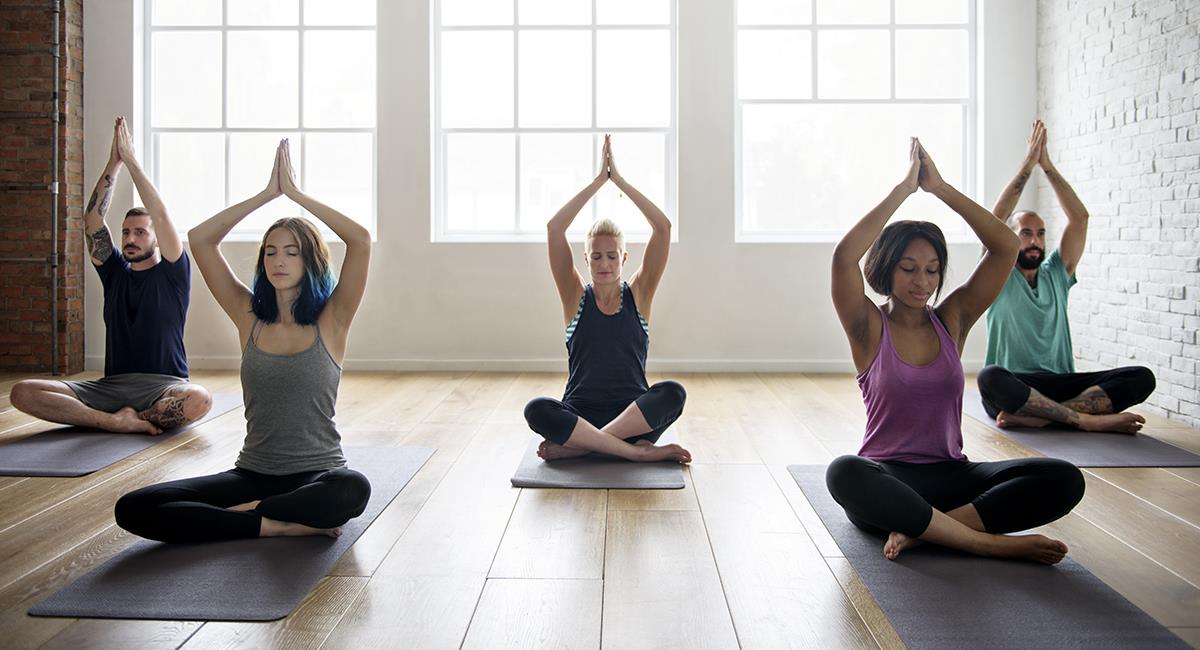Yoga is an ancient mind and body practice, that involves movement, meditation and breathing techniques. It helps to promote physical and mental well-being.
Who can do Yoga?
Yoga can be done by anyone as it various styles and types that are meant for various categories of people and fitness levels.
If you have not done any exercise in a while you may want to check with your health professional before starting yoga to know what type and level is best for you.
Who is Yoga not suitable for?
Most types of yoga pose no threat and are safe for people. However, strains and sprains are some common injuries that can occur while practicing yoga. The following set of people should always seek medical advice before starting a yoga practice:
Pregnant women
Those with ongoing medical conditions such as: Bone loss, glaucoma or sciatica.
Branches of Yoga
Yoga can be divided into six branches that represents a different focus and set of characteristics.
Hatha Yoga: It is the mental and physical branch that is aimed at building the mind and body.
Raja Yoga: It is a branch that involves meditation and strict adherence to some disciplinary steps known as the eight limbs of yoga.
Karma Yoga: A path of service that is aimed at creating a future free from negativity and selfishness.
Bhakti Yoga: This branch is aimed at three things, developing a path of devotion, a positive way to channel emotions and cultivating acceptance and tolerance.
Jnana Yoga: It is a branch that focus on wisdom, the path of the scholar, developing the intellect through study.
Tantra Yoga: It is the pathway of ritual, ceremony, or consummation of a relationship.
Types of Yoga
There are several types and styles that are aimed at different goals and fitness levels.

Ashtanga Yoga: It uses ancient yoga teachings and applies the same poses and sequences while rapidly linking every movement to breathing.
Bikram Yoga: It is also known as hot yoga and is practiced in artificially heated rooms at a temperature of nearly 105 degree F and 40% humidity. It is made up of a 26 poses and a sequence of two breathing exercises.
Hatha Yoga: It is any form of yoga that teaches physical poses. It mostly serves as a gentle introduction to yoga basic poses.
Iyengar Yoga: It focuses on finding the correct alignment in each with the help of a series of props such as bolsters, chairs, blocks, straps and blankets.
Kripalu Yoga: It teaches people to know, accept and learn from the body. Those that practice this type of yoga, learn to find their own practice level by looking inward. It involves breathing exercises, gentle stretches, series of individual poses and a final relaxation.
Kundalini Yoga: It is a system of meditation that helps to release pent-up energy. It often starts with chanting, asana, pranayama, some meditation and then ends with singing.
Power Yoga: It is an active and athletic type of yoga that was developed based on the traditional ashtanga system.
Sivananda: It uses a five point philosophy as its foundation. The five philosophies are Proper breathing, relaxation, diet, exercise and positive thinking, they work together to form a healthy yogic lifestyle. It combines 12 basic asanas, with sun salutations and savasana.
Viniyoga: It focuses on form, breath and adaptation, repetition and holding, and the art and science of sequencing.
Yin Yoga: It focuses on holding passive poses for a long period of time. It helps to target deep tissues, ligaments, joints, bones and fascia.
Prenatal Yoga: it uses poses that are targeted at pregnant females. It can also help to get them back into shape after giving birth and provide health support during pregnancy.
Restorative Yoga: It is a relaxing type of yoga. It is mainly made up of just four or five simple poses, with the use of props such as blankets and bolsters to sink into deep relaxation without exerting any effort.
Benefits of Yoga
Practicing yoga regularly gives various physical and mental benefits such as:
Building endurance
Increasing muscular strength
Promoting internal calmness
Improving flexibility
Promoting better Breathing
Improving heart health
Reducing stress and anxiety
Improving Sleep
Promoting overall well-being and life quality.
Helping with addiction treatment.
Adding yoga to your fitness routine, is one decision that you will never regret as it can bring you a deeper sense of purpose, fulfilment and improves your overall wellbeing. However, it is advisable to see a medical professional before starting a yoga practice if you have not been actively exercising for a while.
Follow us on Instagram @goldfitness_store1 for more fitness tips.





